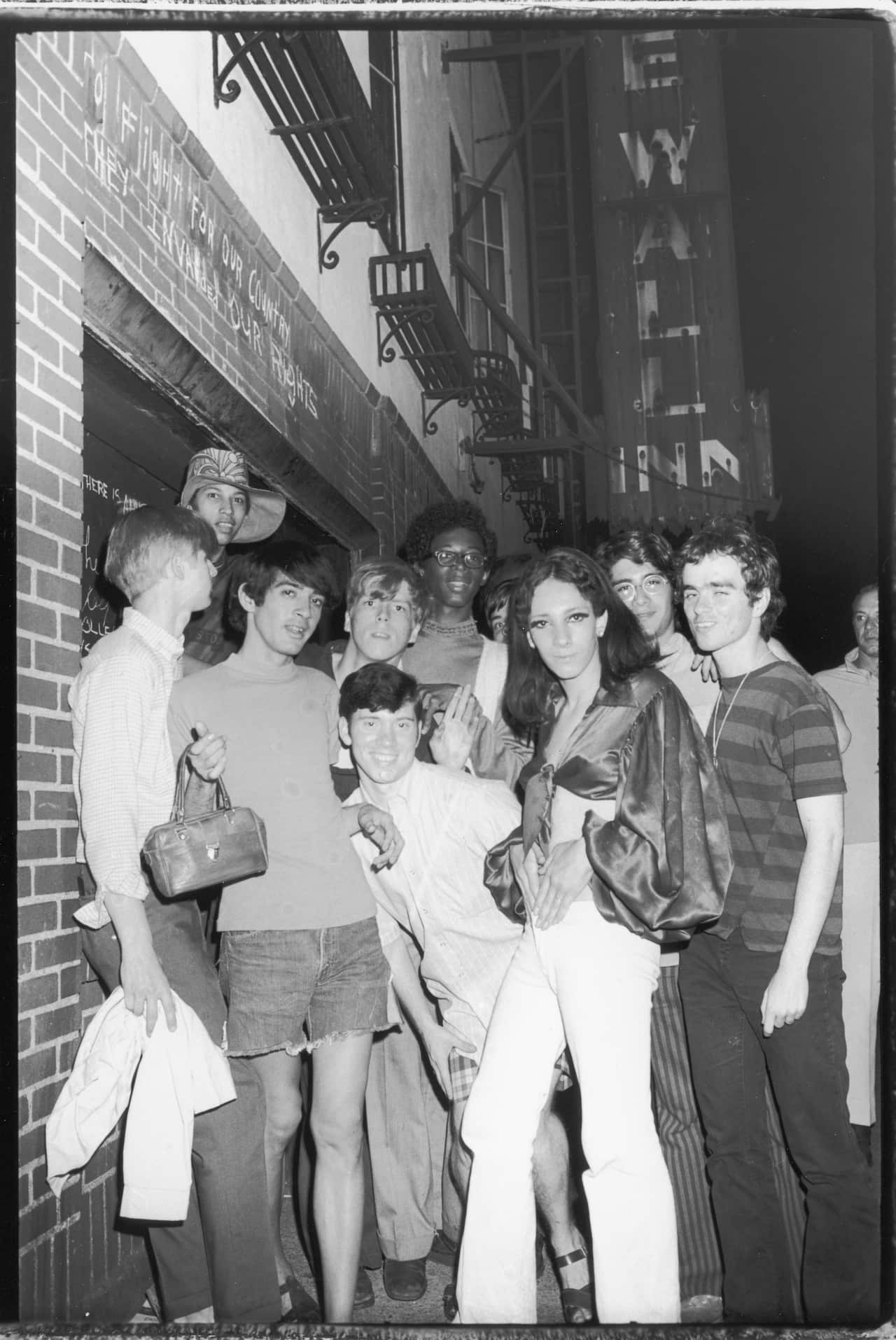In the early hours of 28 June 1969, after a warm New York night, a group of LGBTIQ+ locals decided to stand up to police abuse at the city's now-legendary Stonewall Inn.
Their actions would change the course of gay rights around the world, including as far away as Australia.
This week marks the 50th anniversary of the Stonewall riots.

Patrons of the Stonewall Inn on the night of the 1969 riots. Source: Getty Images
Fighting back
In late 1960s America, homosexuality was still seen as a mental illness and gay sex was illegal except in Illinois.
Few venues welcomed openly gay Americans, and exceptions - including the Mafia-run Stonewall Inn in New York's Greenwich Village - often attracted the attention of authorities.
Police raids were used to expose those who were gay and make an example of men who chose to cross-dress.
But things changed when a group of gay men and women, drag queens, and transgender New Yorkers chose to fight back against officers who had raided the bar for the second time that week.

A crowd attempts to impede police arrests outside the Stonewall Inn in Greenwich Village in 1969. Source: New York Daily News/Getty Images
"That night, for whatever reason ... they started to fight back," Australian LGBTIQ+ rights activist Garry Wotherspoon told SBS News this week.
Stonewall patrons refused to stand in line and have their IDs - and their bodies - checked by police.
A crowd gathered, shouting began, and a scuffle broke out. Police batons were drawn and violent protests and demonstrations lasted for more than three days.
"It became the symbolic start of the fight for LGBTIQ+ rights all around the world. It was like a stone dropped in a pond and its ripples spread."
That night, for whatever reason ... they started to fight back. - Garry Wotherspoon, Australian activist
Mark Segal participated in the riots. He told AFP: "It was the first time our community imprisoned the police, who had always imprisoned us before".

Police violence near the Stonewall Inn in 1970. Source: AAP
A year after the riots, in June 1970, New York staged its first ever Gay Pride parade celebrating the diversity of the LGBTIQ+ community.
From Stonewall to Sydney
Before long, the "ripples" of Stonewall hit Australia, where LGBTIQ+ momentum had been building, but discrimination remained widespread.
In 1970, Australians Christabel Poll and John Ware "came out" in The Australian newspaper and announced the formation of CAMP; the Campaign Against Moral Persecution.

New York's Stonewall Inn. Source: AAP
"From there, activism started," said Mr Wotherspoon, who was a member of CAMP in its early days.
"CAMP started to deal with several things, such as the medical profession which did aversion therapy and psychosurgery, to deal with the law which criminalised homosexual activity, to deal with the church which regarded us as sinful," he said.

An early Mardi Gras. Source: Supplied
Then in March 1978, Australians Ken Davis and Anne Talve received a letter from the San Francisco Gay Freedom Day organisers calling on people overseas to stand up for LGBTIQ+ rights and commemorate the Stonewall riots.
"As representatives of San Francisco's large and active gay community, we are encouraging worldwide activities for gay rights June 25th and the week before in order to present the largest and most unified show of support in history," the letter read.

Ken Davis in Sydney's Taylor Square this week. Source: Emma Lawson/SBS News
It was one element that led to the first Mardi Gras being held in Sydney later that year.
"We decided to have a forum and then a march, and we decided to have a night time party in Taylor Square, a celebration, not a demonstration," Mr Davis - who became one of the original 78ers - told SBS News.
But the events were met with police violence and arrests.

Police confront participants. Source: Supplied
"The unexpected police attack on that Mardi Gras was very traumatic, so we realised on the ninth anniversary of Stonewall in America, we were in a similar sort of conflict with police power in Sydney," Mr Davis said.
"The fact we were attacked ... in a very unprovoked and violent attack it really just galvanised us and then we realised that we had this echo of the Stonewall rebellion."
The following year, up to 3,000 people marched in an incident-free parade.
Mardi Gras went on to become an annual event in Sydney and to this day retains the spirit of both protest and celebration across the country.
Sydney is currently bidding to be the host of WorldPride 2023, and after the legacy of Stonewall, June is considered as Pride Month around the world.

Members of the Tiwi Islands transgender community at Mardi Gras 2017. Source: Getty
In 2018, NSW Police commissioner Michael Fuller gave an official apology to Sydney's 78ers of behalf of the force.
And earlier this month, New York City’s police commissioner James O’Neill apologised for the Stonewall raid which sparked the original riot, saying “the actions taken by the NYPD were wrong”.
'More work to do in Australia'
Reflecting on the 50th anniversary of Stonewall, Mr Wotherspoon said the events of 28 June 1969 continue to have an impact.
"[Stonewall] built momentum and gradually attitudes changed in the wider society," he said.
But while progress had been significant, he said there are still "black spots" around LGBTIQ+ rights in Australia.
He said the country needed stronger laws "which protect LGBTIQ+ people from discrimination" and that we need to take in more "refugees who are fleeing because of their sexuality".

The Marriage Amendment Bill passes the House of Representatives in 2017. Source: AAP
The sentiment was echoed by Mr Davis.
"We've made these extraordinary gains, now we can get married ... [but] I think now it's important to not be complacent."
"I think 50 years has been a big cycle but we shouldn't assume that the future is easy."
Additional reporting: AFP









